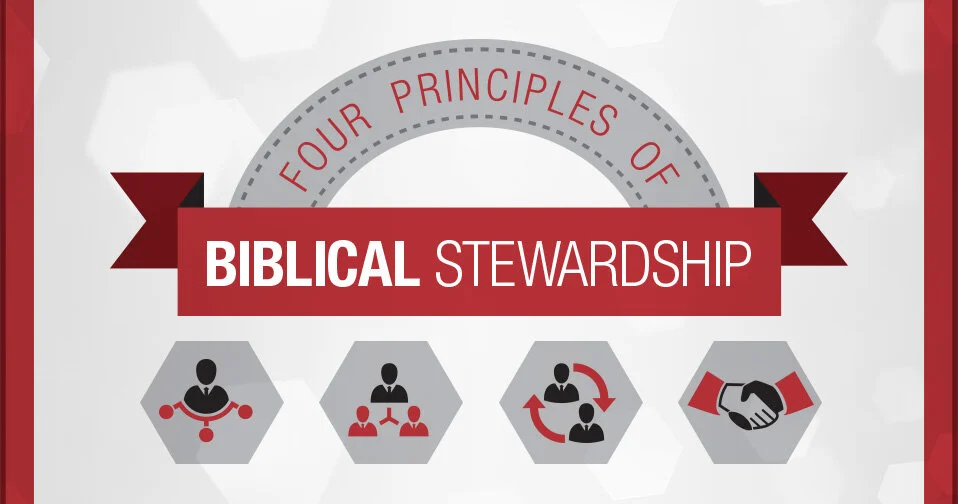3 Pivots That are Necessary for Performance and Progress
— by John Hightower
Have you ever looked up the definition of pivot? What if I shared with you that we as leaders are the “Pivotman/woman” for our organizations? There are multiple definitions, however, the following stuck out to me as I researched the word, its meanings and its derivatives:
■ Pivot - a person or thing that plays a central part in an activity or organization
The Entrepreneurial life is one of constant (and hopefully consistent) pivots. As leaders we are called to make decisions daily, hourly and sometimes in a split second. These frequent micro-pivots are essential to survival. What would pivots look like at the macro-level? What pivots can help you and your organization achieve a strategic advantage? As leaders we are called to make tough decisions - many times with very little or no control of the conditions of a particular situation. I’d like to offer three macro pivot mindsets that have helped me during my entrepreneurial journey.
■ Point of View - Transparently, there was a season not too long ago when my identity was wrapped up in “being an entrepreneur”. I was driven (to an unhealthy level) to make the ventures I was involved in “successful” - most to little financial rewards. While taking an executive education class based on Entrepreneurship, I learned about a new framework to view my career - one in which focused on Experiments. The word “Experiment” gives me (and my team) permission to learn, explore and figure out what the market wants and needs. This terminology also implies limited risk as we learn and grow our firm. My Point-of-View has changed to more of a Business Scientist running Entrepreneurial Experiments to provide value to the market.
■ Practices - Our firm, Arch + Tower, started off with the vision to create a digital leadership learning product. When the funding did not come through, we had to pivot to ensure our business would survive. The majority of my 17-year professional career has been in the consulting space, so we pivoted quickly into consulting - serving clients with a spectrum of services. Our focus was on listening to the “Felt Needs” of clients. We listened to what the prospect/client was telling us about their real needs in their organization. These “Felt Needs” drove us to take on
new work, learn new things and pivot our business model. The “Pivot Practice” mindset has allowed us to expand into four practice areas and tackle challenges we never dreamed of while delivering great results.
■ People - Over time the team will change and that is okay. This pivot has been one of the toughest for me to adjust to as relationships are our lifeline as humans. Part of our Founding Team has moved on to new ventures, challenges and organizations. One of my best team members was recruited by one of my clients. Some of the departures helped create a healthier organization, while others stung due to the loss of capacity and capabilities - I have learned valuable lessons from both situations. The most valuable lesson...in the long-run, transitions tend to work out best for all involved and there is peace in the pivot.
Pivots are challenging and we, at Arch + Tower, want to help leaders through the ups and downs of Organizational Strategy. We have workshops that equip teams to embrace and lead through change. The content in this article is a sample of Point 11 - Developing Leaders on our 14-Point Checklist focused on Building Excellence in your organization.
Related articles
How did Jesus spend his last hours before the cross? He ensured His “Executive Leadership Team” had vision, clarity, and line of sight on essentials and prayed for their cross-functional unity!
Faith-based enterprises transforming economies intuitively makes sense but its potential has yet to be realised. Why is this the case?
Whether it’s in your culture alignment, marketing effectiveness, or simply in increased profitability, we’re dedicated to helping your business to reach new heights.
You may be surprised to learn that situation analyses including market reports and competitive assessments are not just modern-day inventions and practices endemic to the business world. They are not new to God. He designed them!
Are you more wired as an enterprise leader or an entrepreneurial leader? Read more on why both types of leaders are needed in most successful organizations.
As a Christian business owner, are you are attempting to integrate biblical principles into every aspect of your business? How about your retirement plan? Is it even possible to honor God through your 401(k) plan? If yes, how?
After working with literally thousands of leaders and companies, I’ve discovered there are three stages for any business or enterprise growth. Don’t think days and weeks; instead, think growth and maturation.
Early on in a start-up’s life, one must be prepared to iterate…a lot. To think you have got it right on the first try is naive. You don’t have it right. You will need to duck, dodge, and weave your way into the right business model and solution for your target customer. Enter the “good idea fairy.”
Have you ever looked up the definition of pivot? What if I shared with you that we as leaders are the “Pivotman/woman” for our organizations?
In a business world that prioritizes productivity, speed, and profits, Christians may feel like Monday through Friday belongs to the world while Sunday belongs to God. But Scripture beckons Christians toward a more holistic lifestyle. “Whatever you do,” Paul says in 1 Corinthians, “do it all to the glory of God.”
When we (C12 Group) first began to release information, resources and guidance on playing offense in regards to COVID-19 in February there were some reports of “what’s the big deal, it’s not effecting my city, business, industry.” Those delusions are quickly fading. As a global economy, human race, and universal Church everyone is and will be effected in one way or another.
“Creativity must be accompanied by a process to uncover and test the best ideas… With the surplus of good ideas, we knew we needed a process to help us systematically prove out the ones that would solve real problems, and help us avoid expending valuable resources and talent with nothing to show for or learn from at the end.” In this video, we hear from Kevin Miller, C12 Vice President of Marketing, who describes how C12 developed its Innovation Sequence.
This article was from a collection of White Papers compiled for attendees of the CEF’s 2019 Global Event. Today, we share the Morales family’s White Paper on their company FXM — “Hard work in God’s name, diligence, honesty, and a deep knowledge of “Who’s who” in the Mexican food industry has meant the world for our success as a company. ”
Chris Horst and Claire Stewart share their Christianity Today article “The Christian Roots of the Fair Trade Movement” with us. Beneath the buzzwords around sustainability, transparency, and ethical sourcing we find something far more important than consumerism: Christ-centered love for our neighbors.
What does stewardship look like in our lives today? What does it look like in our businesses? Unfortunately, many Christians today only associate the idea of stewardship with sermons, church budgets and building programs. The idea of biblical stewardship is much more expansive. It is where the concepts of faith, work, and economics intersect.
C12 Member, Todd Stewart, and CEO of Gulf Winds Intl, decided a 50% employee engagement rate was not acceptable within his freight and shipping company. He and his Key Player executive team purposed to engage each employee by listening to their needs and delivering exceptional employee care.
Originally published by WRAL TechWire — Bandwidth , a Triangle-born provider of communications-related services that has grown into a venture with global reach, might be riding high at the moment after recently hitting the $2 billion valuation mark. But as its founder and CEO David Morken can attest, it hasn’t always been smooth sailing. He credits one thing for getting him through: his Christian faith.
The Lion's Den, with their conferences in Dallas and Birmingham, have been partners in the Faith Driven Entrepreneur movement for more than 5 years. Think "Shark Tank" meets the Kingdom of God and you have a sense as to what happens at these events. This video is about building your business for God and creating a culture that is Christ based.
From time to time we leave the world of faith driven content to highlight a piece of wisdom from a secular author that has inordinate wisdom and application for you, the faith driven entrepreneur. Enjoy this great blog post from Marc Andreesen!
Originally published by Fast Company— When entrepreneur Chris Chuang moved to Raleigh, North Carolina, for a job, he expected to be there for two or three years at the most. Instead, he wound up staying and built a successful tech company.
This article was from a collection of whitepapers compiled for attendees of the CEF’s 2018 Global Event. We share Darin’s whitepaper in anticipation of 2019 CEF whitepapers launching soon! Read Darin Owen’s view on how to start, build, and grow prosperous companies.
“There are other ways of writing about the stages of business development. I’ve done it myself, but I find quantifying it in this way—0 to 1, 1 to 5, and 5 to 50—makes sense to a lot of my clients. It works in any industry, any style of corporate culture, and every market I can think of.”
Originally published by Fast Company— Corrie Conrad, Head of Social Impact at Sephora, shares about Sephora Stands Together (financial support to Sephora employees), Classes For Confidence (workshops for women trying to reenter the workforce) and Sephora Accelerate, its startup incubator.
C12 shares their video on Gary Archer’s story. He shares on the impact of working with a workplace ministry group that encourages and challenges you in your walk with the Lord and how it integrates with your business.
We understand that we are created in God's image, that he was a creator and a designer and therefore we are the same. As entrepreneurs we inherently get this at some level, but I think that we are well served by tapping in to this Biblical truth regularly as we look for an encouragement in our work. No one does a better job of this, in my opinion, than Jerry Bowyer.
Originally published by FORBES — The Millennials, who were born into the age of information, have been described as lazy, narcissistic, entitled and unable to stay in one job, but also as the most purpose-driven and potentially the most entrepreneurial of all previous generations. Why?
Today, we share a high-caliber podcast series from NPR! How I Built This with Guy Raz dives into the stories behind some of the world's best known companies & movements and the innovators, entrepreneurs and idealists leading them.
Jon Kontz shares his insights on hiring the right people (as individuals and as part of a team) using tools like The Team Dimensions Profile 2.0 but also by simply knowing the momentum and scarcity of resources based on the size of your own company.





























In Pierce Brantley's research, he's discovered that many well-meaning Christian business owners will get stuck at various stages of business without realizing it.